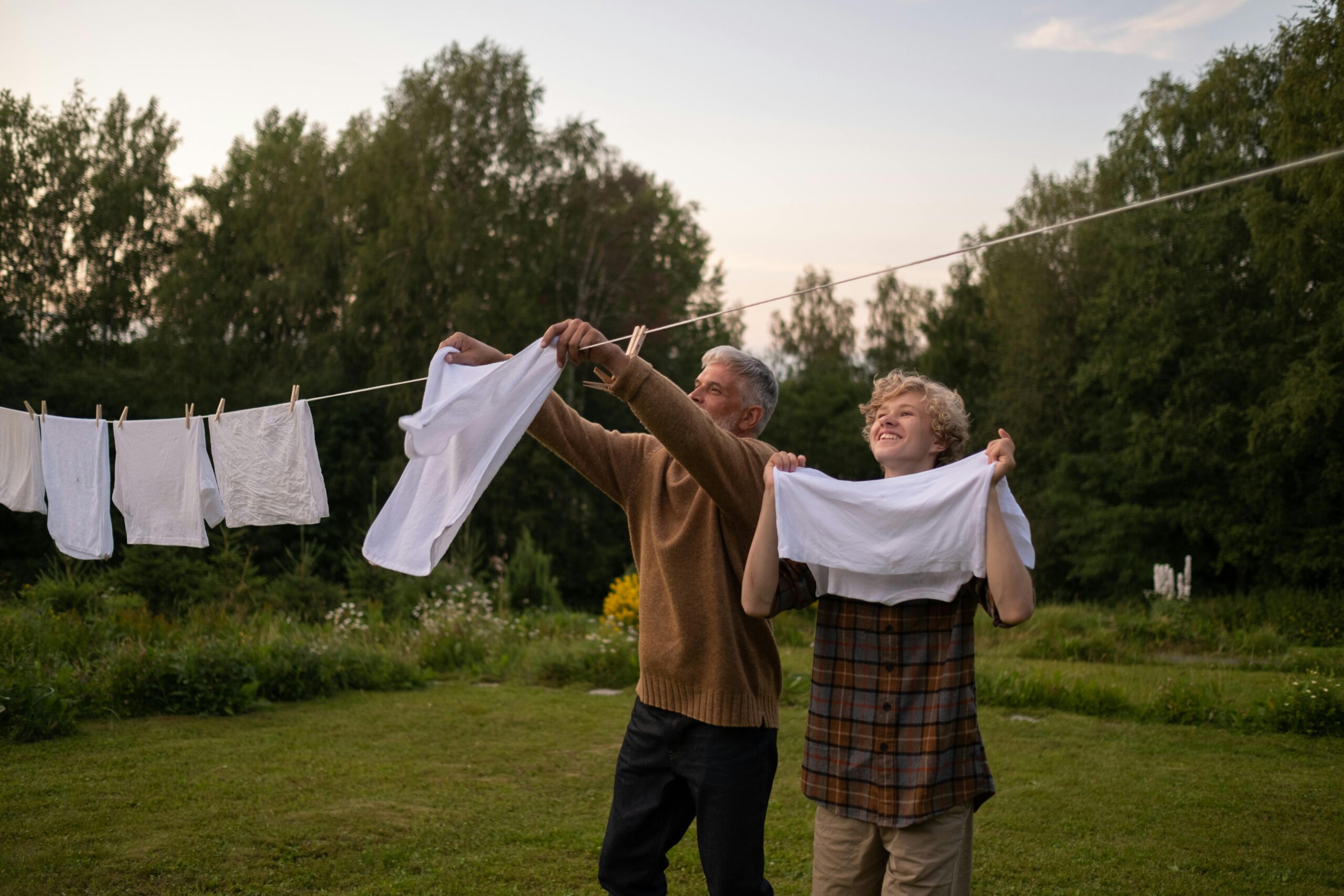Watching a loved one navigate dementia can feel like standing in shifting sands — routines change, needs evolve, and the fear of losing independence looms large. For families and caregivers, the question of where and how they can live safely while preserving dignity often becomes a constant worry. Homes once filled with familiarity may now pose risks, yet moving to full-time care facilities can feel like surrendering autonomy.
Supported Independent Living (SIL) offers a compassionate middle path. It’s not about giving up freedom or settling for impersonal care — it’s about creating a space where your loved one can thrive on their own terms. Think of it as a bridge: safety nets are in place, daily tasks become manageable, and caregivers can breathe easier knowing support is tailored yet unobtrusive.
What is SIL Accommodation?
SIL is a way for people with disabilities, like those with dementia, to live on their own with some help. It’s not like living in a big care home where everything is done for you. Instead, SIL helps you do things for yourself while having support when you need it. Imagine having a home that’s set up just for you, where you can do your favourite things and have routines that feel normal. SIL makes sure you have a safe place to live and can still do things that make you happy.
How Does SIL Work?
SIL is funded by a program called the National Disability Insurance Scheme (NDIS). This program helps pay for the support you need, and it’s tailored just for you. Whether you need help with taking a bath, remembering to take your medicine, or cleaning your house, SIL provides that support.
The goal of SIL is to help you live as independently as possible while still getting the help you need. It’s not just about having a place to live; it’s about living a life that feels good and fulfilling. SIL covers:
- Help with personal care, like bathing and dressing
- Assistance with taking medication on time
- Housework, like cleaning and laundry
- Preparing meals that you like
Benefits of SIL Accommodation for Dementia Patients
Choosing the right place to live can make a big difference for someone with dementia. Here’s how supported independent living for dementia helps:
1. Personalised Support Plans
Every person with dementia is different, and their needs change over time. SIL providers make special plans just for them. Imagine having a team that knows your loved one’s favourite activities, their daily routines, and how to gently remind them of important tasks like taking medication. This helps them stay independent and feel respected.
2. Enhanced Safety and Security
Safety is super important when caring for someone with dementia. SIL accommodations are designed to be safe and easy to navigate:
- The layout is simple, so they don’t get confused.
- Doors and windows are secure, so they don’t wander off, but they can still move around freely inside.
- Smart home technology, like lights that turn on automatically, makes things safer and easier to use.
This setup lets your loved one move around without feeling trapped, keeping them safe and independent.
3. Promoting Independence
Unlike big care homes where everything is done for you, SIL encourages people to do things for themselves. They get help with decisions, daily tasks, and fun activities. This makes them feel confident and in control, which is good for their well-being.
4. Access to Trained Caregivers
Taking care of someone with dementia needs special skills. SIL accommodations have caregivers who know how to handle the unique challenges of dementia. They’re trained to be kind and effective, making life easier for both the person with dementia and their family.
5. Social Engagement Opportunities
People with dementia can feel lonely, but SIL helps with that. They have group activities, shared meals, and chances to make friends. Imagine your loved one enjoying music therapy, gardening with others, or sharing stories over dinner. These activities make them feel connected and happy.
6. Relieving Caregiver Burden
For family members, taking care of someone with dementia can be really tiring. SIL accommodation gives caregivers peace of mind because their loved one is in a safe place with professional help. This means families can focus on spending quality time together, not just on caregiving tasks. It helps reduce stress and makes for more meaningful moments.
NDIS Funding for SIL Accommodation
One of the best things about Supported Independent Living (SIL) accommodation is that the National Disability Insurance Scheme (NDIS) helps pay for it, making it easier for more people to use this option.
Who Can Get SIL Funding?
To get SIL funding from the NDIS, you need to be 18 years or older and need help with daily tasks for at least eight hours a day, plus some help at other times. You’ll need an assessment to show that SIL is the right kind of help for you. This involves a report from a health professional to show you need a lot of support and another report to find the best place for you to live. The NDIS planner works with you and your family to make a plan that fits your needs, goals, and where you want to live.
Getting Help with NDIS Funding
Finding the right place to live and understanding NDIS funding can be tricky, but there are people who can help. NDIS coordinators can guide you through the process. They help you understand how NDIS and SIL work, help make a plan that covers everything you need, find the right SIL providers for you, and make sure you and your family are involved in making the plan.
How Much Money You Get
The NDIS gives you money for SIL separately from other kinds of help. Before they give you the money, they need a plan from a provider that shows what kind of help you need. How much money you get depends on your age, how much help you need with daily tasks, what you want to achieve, and any changes needed in your home.
What SIL Funding Pays For
SIL funding helps with personal care, like bathing, dressing, and getting ready in the morning, housework like cleaning, laundry, and making meals, learning new skills like managing money or making friends, and health stuff like taking medicine and going to the doctor, and having fun and meeting people through group activities.
What SIL Funding Doesn’t Pay For
Remember, SIL funding doesn’t cover rent or mortgage payments, everyday expenses like food and bills, or changes to your home, which might be covered by something called Specialist Disability Accommodation (SDA).
If you’re ready to look into dementia care using NDIS, talk to your coordinator about SIL and how to get it. Get the assessments you need to show you qualify, visit different places to see what feels right for you, meet people who might live with you if you’re thinking about sharing a home, and work with your coordinator to make a plan for moving into SIL accommodation.
Real-Life Impact: A Case Study
Helen, a 72-year-old with mid-stage dementia, faced many challenges before moving into supported independent living (SIL). Her family struggled to give her the constant care she needed, and Helen often felt lonely and confused. Everything changed when Helen moved into an SIL home through the NDIS. With caring staff to help with her medication, a safe space to explore, and daily activities like painting classes, Helen found her confidence and happiness again. Her family could finally breathe easier too, knowing she was safe, active, and receiving the care she truly needed.
Give Your Loved One the Care They Deserve
Supported Independent Living (SIL) helps individuals with dementia maintain independence, stay connected, and live a fulfilling life. At Reaching Abilities, we provide personalised SIL services to ensure your loved one feels safe, supported, and valued. Our compassionate NDIS professionals assist with daily activities while addressing physical, emotional, and social needs. Together, we’ll create a care plan that helps your loved one thrive. Get started with a FREE consultation to discuss their needs and goals. Contact us today—your loved one deserves the best care.

Ozer Tanlasi – Founder and Director of Reaching Abilities
Ozer Tanlasi is the Founder and Director of Reaching Abilities, an organisation dedicated to providing compassionate and empowering support to individuals with disabilities. With a background in allied health and a deep commitment to inclusive care, Ozer established Reaching Abilities to create a welcoming space where individuals can thrive, gain independence, and achieve their personal goals. Her approach is centred around understanding each individual’s unique needs and strengths, ensuring they receive tailored services that make a positive impact on their lives. Under Ozer’s leadership, Reaching Abilities has become known for its compassionate, client-focused approach, supporting individuals and families in building meaningful connections and reaching new potentials.






